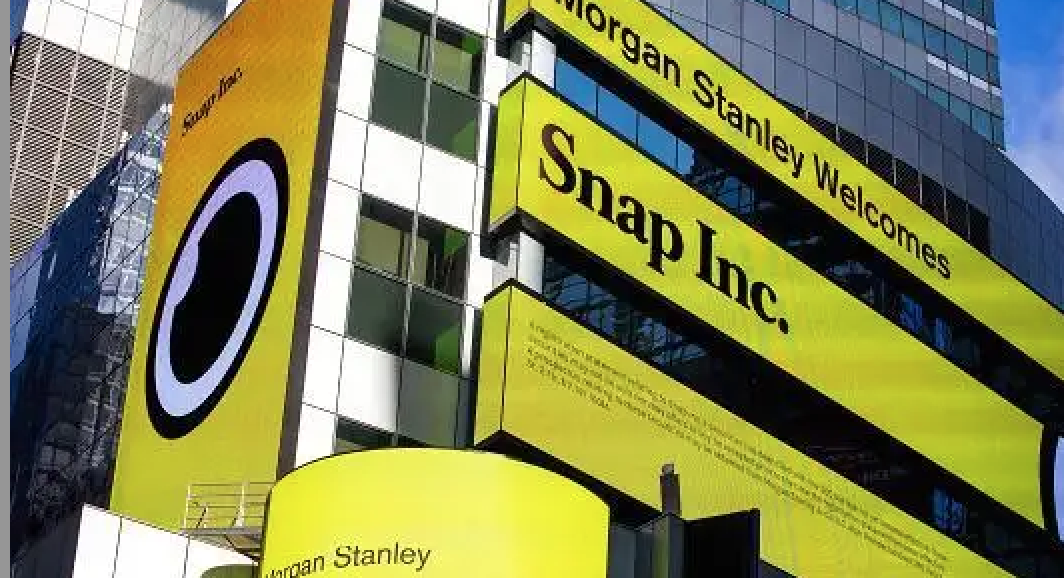
▎Snap does not believe in falsehood
Snap was founded by Evan Spiegel and Bobby Murphy on September 16, 2011 and named Snap. The company pioneered the "camera-focused" social media app Snapchat, then dubbed "the next Facebook."
All along, Snap has been actively investing in AR-related software and hardware, and has continued to recruit and acquire companies. Since 2021, Snap has successively acquired AR waveguide display manufacturer WaveOptics, LCoS and MicroLED manufacturer CompoundPhotonics, and brain-computer interface manufacturer NextMind.
In addition , they have established SnapLab, an AR research team dedicated to AR technology innovation.
Since then, Snapchat is no longer a simple social software: now this product integrates a large number of functions based on AR and related technologies, and has become the only veritable "everyone-level AR application".
For AR, the company said it has reached a new milestone: the SnapAR platform brings together more than 250,000 filter creators, developers, brands and partners from more than 200 countries and regions, who have produced more than 2.5 million filters, with more than 3.5 trillion user views.
Among them, more than 300 creators have at least one work that has received more than 1 billion views. There are more than 200 million users playing AR on Snapchat, with an average of more than 6 billion AR games per day.
The people of Silicon Star once put forward a saying: whoever gets AR, can become the overlord of the metaverse.
At present, Meta (formerly Facebook), the company that is most crazy about promoting the concept of the metaverse, has lagged behind Snap by at least 4 years in terms of AR technology and products.
Because, in the new version of LensStudio, developers will be able to use the EventInsights function to view the interaction statistics of users using AR effects, and track interaction events including touch screen, voice control, etc. And then through the development of AR special effects to get more users, make more money.

Many voices in the market believe that Snap is a metaverse company.
But Evan Spiegel pointed out in an interview with The Guardian after the meeting that his own employees rarely use the term "metaverse" because the metaverse is an "ambiguous and hypothetical" description, and we humans" Love the real world."
Therefore, Snap is betting its future on augmented reality technology, rather than the "metaverse" concept that the capital market is keen to hype.
In Spiegel's view, although many companies, including Meta, are blowing up the metaverse, the metaverse does not exist to this day. Compared with the metaverse, AR is real.
While other companies are still frantically selling the concept of the metaverse, but it is difficult to impress ordinary users other than practitioners and followers, Snap AR is already a genuine business market with hundreds of millions of users.

▎The increasingly perfect AR ecosystem
Snap gaming partners can monetize on Snapchat by building lightweight, social gaming content.
Currently, more than one-third of Snap partners have made more than one million dollars, and many partners plan to return to Snapchat again to generate more revenue. This time Snap also added a social experience to the developer's Minis applet. Released in 2020, Minis now has more than 20 partners including Ticketmaster, HBOMax, Poshmark and more.
The new Minis private component system launched by Snap this time allows developers to customize and add required social elements in activities, such as ratings, reviews, and recommendations, on the premise of protecting user privacy.

Creators are also one of Snap's valued partners, and Snapchat creators can increase their attention and generate revenue in a number of ways.
Through the efforts of passionate and imaginative creators, Snapchat brings together a wealth of interesting original content and stories every day. Nearly two-thirds of Spotlight subscriptions use at least one Snapchat creator tool or special lens.
To help creators create videos more efficiently, Snap has introduced DualMode editing tools, which means creators can use both the front and rear cameras to capture 360-degree panoramic content, bringing faster, smoother, More amazing creative content and experience.
Snap's focus on AR is not how cool the virtual parts are (and that's what Metaverse companies and practitioners are thinking about), but back to the original literal meaning of the words "augmented reality" : Using the power of computing to augment the real world.
What this company wants to do is not to indulge users in products and technologies, but to bring users a new way to observe and experience the real world through products and technologies.
Their users, revenue, and profits have all grown substantially over the past few years, but the social media landscape is always changing, with stiff competition from competitors threatening future growth.





